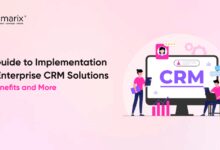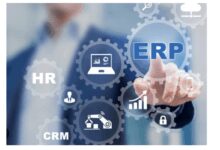Enterprise CRM Solutions: 7 Powerful Benefits You Can’t Ignore
In today’s hyper-competitive business world, enterprise CRM solutions are no longer a luxury—they’re a necessity. These powerful platforms help large organizations streamline customer interactions, boost sales, and drive long-term loyalty with unmatched precision.
What Are Enterprise CRM Solutions?

Enterprise CRM solutions are advanced customer relationship management systems designed specifically for large-scale organizations with complex operations, vast customer databases, and multi-departmental workflows. Unlike standard CRM tools built for small or mid-sized businesses, enterprise-grade platforms offer robust scalability, deep customization, integration capabilities, and enterprise-level security.
Defining Enterprise CRM
At its core, an enterprise CRM system centralizes customer data across sales, marketing, customer service, and support functions. It enables real-time access to customer histories, preferences, and interactions, empowering teams to deliver personalized experiences at scale. According to Gartner, the global CRM market is projected to exceed $80 billion by 2025, driven largely by enterprise adoption.
- Centralized customer data management
- Advanced automation and workflow orchestration
- Multi-channel engagement (email, phone, chat, social media)
- Global deployment and localization support
How Enterprise CRM Differs from SMB CRM
While small and medium businesses often use off-the-shelf CRM tools like HubSpot or Zoho, enterprise CRM solutions require a fundamentally different architecture. They must support thousands of users, integrate with legacy systems (ERP, HRIS, supply chain), and comply with strict regulatory standards such as GDPR, HIPAA, or SOX.
“Enterprise CRM isn’t just about managing contacts—it’s about transforming customer experience across global touchpoints.” — Forrester Research
Key differentiators include:
- Scalability: Handles millions of records and concurrent users.
- Customization: Offers low-code/no-code development environments for tailored business logic.
- Security: Role-based access control, audit trails, and data encryption at rest and in transit.
- Integration Depth: Native APIs and middleware connectors for SAP, Oracle, Microsoft Dynamics, and custom-built systems.
Top 7 Benefits of Enterprise CRM Solutions
Implementing the right enterprise CRM solution can transform how a large organization operates. From improving customer retention to accelerating sales cycles, the benefits are both strategic and measurable.
1. Unified Customer View Across Departments
One of the most powerful advantages of enterprise CRM solutions is the ability to create a single, 360-degree view of every customer. This unified profile aggregates data from sales calls, service tickets, marketing campaigns, e-commerce behavior, and social media interactions.
For example, when a customer contacts support, the agent can instantly see recent purchases, past complaints, and even upcoming renewal dates. This level of insight allows for faster resolution and more empathetic service.
- Breaks down data silos between departments
- Enables context-aware customer engagement
- Reduces duplicate data entry and errors
2. Enhanced Sales Performance and Forecasting
Enterprise CRM solutions provide advanced sales automation tools that streamline lead management, opportunity tracking, and pipeline forecasting. With AI-powered analytics, sales leaders can predict revenue trends with greater accuracy.
According to a study by Nucleus Research, companies using CRM see an average return of $8.70 for every dollar spent. Sales teams using enterprise CRM report:
- 30% shorter sales cycles
- 25% increase in win rates
- Improved quota attainment across reps
3. Scalable Marketing Automation
Modern enterprise CRM platforms integrate deeply with marketing automation engines, enabling personalized campaigns at scale. Whether it’s triggering targeted emails based on user behavior or scoring leads using machine learning models, these systems help marketers deliver the right message at the right time.
Key features include:
- Behavioral tracking across web and mobile apps
- A/B testing for campaign optimization
- Customer journey mapping and orchestration
- ROI measurement across channels
4. Superior Customer Service and Support
With enterprise CRM solutions, customer service becomes proactive rather than reactive. Service teams can access complete interaction histories, automate ticket routing, and leverage knowledge bases powered by AI chatbots.
For instance, Salesforce Service Cloud and Microsoft Dynamics 365 Customer Service offer omnichannel support, allowing customers to switch seamlessly between phone, email, chat, and self-service portals—all within the same case thread.
- Reduces average handling time by up to 40%
- Increases first-contact resolution rates
- Improves customer satisfaction (CSAT) scores
5. Data-Driven Decision Making
Enterprise CRM systems generate vast amounts of data that, when analyzed correctly, provide actionable business intelligence. Dashboards and reporting tools allow executives to monitor KPIs in real time, identify bottlenecks, and adjust strategies accordingly.
Advanced platforms now include embedded analytics and AI assistants like Einstein Analytics (Salesforce) or Power BI (Microsoft), which can surface insights such as:
- Which customer segments are most profitable?
- What factors influence churn risk?
- How effective are marketing campaigns by region?
6. Global Collaboration and Remote Work Enablement
In a post-pandemic world, distributed teams are the norm. Enterprise CRM solutions support global collaboration by providing cloud-based access to customer data from anywhere in the world, on any device.
Features like real-time document sharing, team collaboration feeds, and mobile CRM apps ensure that remote sales reps, field service technicians, and support agents remain productive and connected.
- Supports hybrid and remote work models
- Enables real-time updates across time zones
- Integrates with communication tools like Slack, Teams, and Zoom
7. Regulatory Compliance and Data Security
For enterprises operating in regulated industries (finance, healthcare, government), compliance is non-negotiable. Enterprise CRM solutions offer built-in tools to meet legal and industry standards.
These include:
- Data residency controls (store data in specific geographic regions)
- Audit logs for tracking user activity
- Consent management for GDPR and CCPA
- End-to-end encryption and multi-factor authentication
Platforms like Oracle CX and SAP Customer Experience are designed with compliance-first architectures, making them ideal for highly regulated sectors.
Key Features to Look for in Enterprise CRM Solutions
Not all CRM platforms are created equal. When evaluating enterprise CRM solutions, organizations must prioritize features that align with their scale, complexity, and long-term goals.
Advanced Customization and Configuration
Enterprises have unique processes that off-the-shelf software often fails to accommodate. The best enterprise CRM solutions offer flexible data models, customizable workflows, and drag-and-drop interface builders.
For example, administrators can create custom objects (like “Service Contracts” or “Partner Relationships”), define approval processes, and automate complex business rules without writing code.
- Low-code/no-code development environments
- Custom fields, page layouts, and record types
- Process automation using visual flow builders
AI and Machine Learning Capabilities
Artificial intelligence is no longer a futuristic concept—it’s a core component of modern enterprise CRM solutions. AI enhances everything from lead scoring to sentiment analysis in customer service.
Examples include:
- Predictive lead scoring: Identifies high-intent prospects based on historical data
- Next-best-action recommendations: Suggests optimal follow-ups for sales reps
- Sentiment analysis: Detects customer frustration in support tickets or chat logs
- Automated data entry: Extracts contact info from emails using natural language processing
According to IDC, by 2024, over 75% of enterprise CRM deployments will include AI-driven insights.
Seamless Integration with Existing Systems
No enterprise operates in isolation. CRM systems must connect with ERP (e.g., SAP, Oracle), HR platforms (Workday, SuccessFactors), e-commerce engines (Shopify, Magento), and data warehouses (Snowflake, Databricks).
Modern CRM platforms offer:
- Pre-built connectors for popular enterprise applications
- RESTful APIs for custom integrations
- Middleware support via platforms like MuleSoft, Dell Boomi, or Zapier
- Real-time synchronization to prevent data lag
Leading Enterprise CRM Solutions in 2024
The market for enterprise CRM solutions is dominated by a few key players, each offering distinct strengths depending on industry, deployment preference, and integration needs.
Salesforce Sales Cloud
Salesforce remains the global leader in CRM, with a 19.8% market share according to Statista. Its Sales Cloud platform is renowned for its flexibility, ecosystem of apps (AppExchange), and AI-powered Einstein features.
- Strengths: Extensive customization, strong third-party app marketplace, global scalability
- Best for: Large sales organizations needing deep automation and analytics
- Deployment: Cloud-only (multi-tenant)
Microsoft Dynamics 365
Microsoft Dynamics 365 stands out for organizations already invested in the Microsoft ecosystem (Office 365, Azure, Power Platform). It offers seamless integration with Outlook, Teams, and Excel, making it user-friendly for employees.
- Strengths: Tight integration with Microsoft tools, strong BI via Power BI, hybrid deployment options
- Best for: Enterprises using Microsoft infrastructure and seeking unified productivity
- Deployment: Cloud, on-premise, or hybrid
Oracle CX (Customer Experience)
Oracle CX is ideal for large enterprises with complex B2B or B2C operations, especially in manufacturing, retail, and telecommunications. It offers end-to-end customer journey management from marketing to service.
- Strengths: Built for high-volume transaction environments, strong data security, AI-driven personalization
- Best for: Regulated industries and global brands with omnichannel needs
- Deployment: Cloud (Oracle Cloud Infrastructure)
SAP Customer Experience
SAP’s CRM suite is tightly integrated with its ERP systems, making it a natural choice for companies running SAP S/4HANA. It excels in order management, pricing, and supply chain visibility.
- Strengths: Deep ERP integration, real-time inventory and pricing sync, B2B commerce focus
- Best for: Manufacturing, logistics, and wholesale distribution firms
- Deployment: Cloud or private cloud
Implementation Challenges of Enterprise CRM Solutions
Despite their benefits, deploying enterprise CRM solutions is not without challenges. Poor planning, lack of user adoption, and data quality issues can derail even the most well-funded projects.
Data Migration and Quality Issues
One of the biggest hurdles is migrating legacy data into the new CRM system. Inconsistent formats, duplicate records, and missing fields can compromise data integrity.
Best practices include:
- Conducting a comprehensive data audit before migration
- Deduplicating and standardizing data (e.g., phone number formats)
- Using ETL (Extract, Transform, Load) tools for smooth transfer
- Establishing ongoing data governance policies
User Adoption and Training
A CRM system is only as effective as the people using it. If employees resist the new platform due to complexity or lack of training, ROI diminishes quickly.
To improve adoption:
- Involve end-users in the selection and design process
- Provide role-based training (sales vs. service vs. marketing)
- Use gamification to encourage usage (badges, leaderboards)
- Appoint internal CRM champions in each department
Integration Complexity
Connecting a CRM to dozens of backend systems can be technically challenging. APIs may be unstable, data formats incompatible, or legacy systems lack modern integration capabilities.
Solutions include:
- Using enterprise service buses (ESB) or iPaaS platforms
- Phased integration approach (start with critical systems first)
- Partnering with integration specialists or consultants
- Monitoring API performance and error rates
Future Trends in Enterprise CRM Solutions
The CRM landscape is evolving rapidly, driven by AI, cloud computing, and changing customer expectations. Enterprises must stay ahead of these trends to remain competitive.
AI-Powered Hyper-Personalization
Future enterprise CRM solutions will move beyond basic segmentation to deliver hyper-personalized experiences in real time. AI will analyze behavioral, demographic, and transactional data to predict individual customer needs.
Imagine a CRM that automatically suggests a discount to a high-value customer showing signs of churn—or routes a support ticket to the most empathetic agent based on past interactions.
- Real-time personalization engines
- Predictive customer lifetime value modeling
- Dynamic content generation using generative AI
Embedded Analytics and Natural Language Querying
Instead of relying on static reports, future CRM users will ask questions in plain language: “Show me all enterprise deals at risk this quarter.” The system will instantly generate visualizations and insights.
This shift toward conversational analytics lowers the barrier to data access and empowers non-technical users to make informed decisions.
Blockchain for Customer Data Integrity
As data privacy concerns grow, blockchain technology may be used to create tamper-proof logs of customer interactions and consent records. This ensures transparency and trust in how data is used.
While still in early stages, pilot programs are already exploring blockchain-based identity verification and secure data sharing between partners.
How to Choose the Right Enterprise CRM Solution
Selecting the right CRM is a strategic decision that requires careful evaluation. Here’s a step-by-step guide to help enterprises make the best choice.
Assess Your Business Needs
Start by identifying your key pain points. Are you struggling with long sales cycles? Poor customer retention? Inefficient support operations? Map these challenges to CRM capabilities.
- Define core objectives (e.g., increase upsell rate by 15%)
- Identify must-have features (e.g., contract management, field service)
- Consider industry-specific requirements (e.g., healthcare compliance)
Evaluate Total Cost of Ownership (TCO)
Enterprise CRM solutions involve more than just licensing fees. Consider:
- Licensing costs per user/month
- Implementation and consulting fees
- Customization and integration expenses
- Ongoing maintenance and training
- Opportunity cost of downtime during migration
Some platforms offer subscription models (Salesforce), while others charge perpetual licenses (Dynamics on-premise). Cloud solutions typically have lower upfront costs but higher long-term expenses.
Conduct Proof of Concept (PoC)
Before committing, run a pilot with a limited user group. Test key workflows like lead-to-cash, case management, and campaign execution. Measure performance, usability, and integration stability.
- Select a representative sample of users
- Simulate real-world scenarios
- Gather feedback and iterate
- Compare results across shortlisted vendors
Measuring Success: KPIs for Enterprise CRM Solutions
Once implemented, it’s crucial to track the impact of your CRM investment. Use key performance indicators (KPIs) to measure ROI and guide continuous improvement.
Sales KPIs
- Sales cycle length
- Conversion rate by stage
- Average deal size
- Forecast accuracy
- Quota attainment
Marketing KPIs
- Lead-to-customer conversion rate
- Cost per lead
- Campaign ROI
- Email open and click-through rates
- Customer acquisition cost (CAC)
Customer Service KPIs
- First response time
- First contact resolution rate
- Customer satisfaction (CSAT)
- Net Promoter Score (NPS)
- Average handling time
“You can’t improve what you don’t measure. A successful CRM rollout must be tied to clear, quantifiable outcomes.” — McKinsey & Company
Regularly review these metrics and adjust processes, training, or configurations as needed.
What are enterprise CRM solutions?
Enterprise CRM solutions are advanced software platforms designed for large organizations to manage customer relationships at scale. They offer deep customization, integration capabilities, and robust security to support complex, global operations across sales, marketing, and customer service.
What are the top enterprise CRM platforms?
The leading enterprise CRM platforms include Salesforce Sales Cloud, Microsoft Dynamics 365, Oracle CX, and SAP Customer Experience. Each offers unique strengths in integration, AI, industry specialization, and deployment flexibility.
How much does an enterprise CRM cost?
Costs vary widely based on vendor, number of users, and customization needs. Pricing typically ranges from $150 to $300+ per user per month. Implementation and integration can add tens or hundreds of thousands of dollars to the total cost of ownership.
How long does it take to implement an enterprise CRM?
Implementation timelines range from 3 to 12 months, depending on complexity. Factors include data migration, integration with legacy systems, user training, and organizational change management.
Can small businesses use enterprise CRM solutions?
While technically possible, enterprise CRM solutions are often overkill for small businesses due to high costs and complexity. SMBs are better served by simplified CRM tools like HubSpot, Zoho CRM, or Salesforce Essentials.
Enterprise CRM solutions are a cornerstone of modern business strategy. They empower large organizations to unify customer data, automate workflows, and deliver exceptional experiences at scale. While implementation requires careful planning and investment, the long-term benefits—improved sales performance, higher customer satisfaction, and data-driven decision-making—make them indispensable in today’s digital economy. As AI, automation, and analytics continue to evolve, the next generation of CRM platforms will redefine what’s possible in customer relationship management.
Further Reading:


